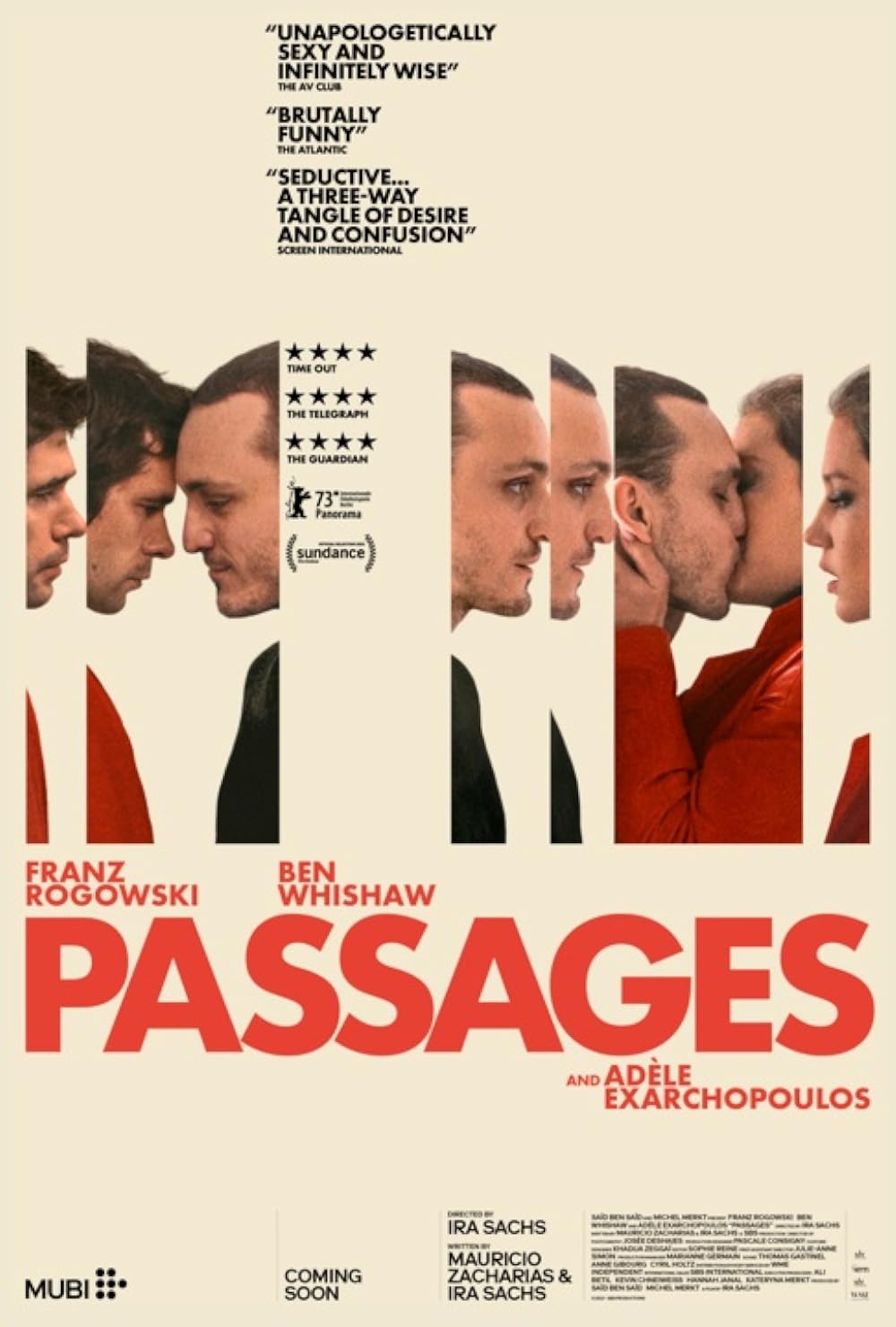Score: 3.5/5
Wanting it all comes with a price.
Ira Sachs’ Passages tells the story of Paris-based German filmmaker Tomas (Franz Rogowski) who begins an affair with Agathe (Adélé Exarchopoulos), damaging the marriage with his husband, Martin (Ben Whishaw). As Tomas’ relationship with Agathe grows, he soon becomes jealous when Martin begins seeing other people himself, leading him down a path of self-destruction.
Passages establishes an important precedent for queer cinema. Tomas’ sexuality is never questioned or presented in a manner that seeks to lecture a heteronormative crowd. Its queer relationships don’t exist in the vacuum of heteronormativity and are simply presented naturally as they are, without exhibiting any signs of pressure to provide exposition.
Tomas is never presented in a sympathetic light, or rather the film never succeeds in doing so. His monstrous ego is always at the centre of the frame, spilling over into his sidelined relationships. Rogowski’s performance is successful in giving life to a profoundly unlikable protagonist with nearly zero redeeming qualities.
In the first scene, Tomas’ character is revealed through his approach to directing. He is seen repeatedly fussing over actors’ small movements, even those as benign as walking down steps. In the throne of a director’s chair behind the shield of a script, Tomas has control over both his emotions and intentions. He can manipulate how actors respond to suit a desired outcome, something absent in his chaotic personal life.
Tomas’ need for control and emotional influence on set provides insight into his relationships, both with people considerably more likable experiencing the collateral of Tomas’ damaging behaviour.
Martin appears entirely opposite to Tomas, almost always completing some form of stable work or chore. He’s patient, dedicated and used to enduring the difficult work, all tendencies Tomas seeks to exploit and earn redemption from.
Agathe is presented as a companion to Tomas, being younger and full of just the right amount of hedonism to satisfy him, for a little while of course. When Tomas feels he has too much of one, he orients to the other, a way of finding balance between two extremes.
There’s a child-like innocence in Tomas’ pursuit to have it all. Passages oozes eroticism and vibrancy tainted by Tomas’ narcissism. It never holds back in depicting lustful actions.
Where Passages risks losing its audience is its loose narrative ends, which make climatic moments feel less impactful than they intended to be. It’s an ambitious work of queer cinema, but often gets caught in the mess Tomas creates. His motivations are interpretive and highly suggested several times, but ultimately feel hollower than they’re aiming to be.
The weakness of Tomas’ motives is exposed when the supporting roles begin to feel more gripping and engaging, between Martin’s gradual accumulation of strength to end their masochistic relationship and Agathe’s melancholy realization of her own powerlessness in the situation. This exposes another flaw in the story however, as the supporting roles appear more interesting on account of their stellar performances but ultimately lack the narrative influence to feel memorable after the credits roll.
In its highest points, Passages is an ambitious, welcomed addition to queer cinema that embraces its messy characters. It commits to several lofty goals, notably its depictions of sex, which are refreshingly natural and carry narrative weight. The performances are also full of chemistry, keeping the dialogue interesting. Unfortunately, Passages spreads itself thin on its third act, which unfortunately may leave some viewers feeling as isolated from the story as the motivations are from characters.

